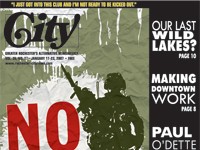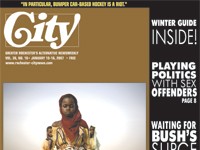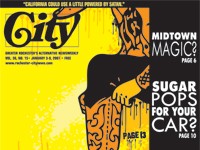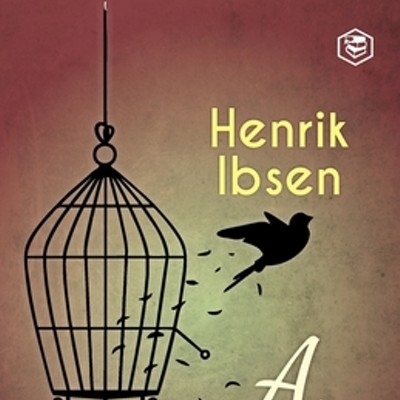[
{
"name": "500x250 Ad",
"insertPoint": "5",
"component": "15667920",
"parentWrapperClass": "",
"requiredCountToDisplay": "1"
}
]
Shortly after the September 11 attacks, a few figures in Rochester's Christian community recognized a void in the local response to the tragedy. As the country cocked its collective fist and prepared to exact bloody revenge on a global scale, several secular organizations in the area had quickly released statements urging restraint.
"Some of us felt that there wasn't a clear enough Christian profile weighing in on the issue," says Mike Roberts, a local labor organizer who's in the process of becoming ordained as an American Baptist minister.
Roberts joined Dr. Melanie May of Colgate Rochester Divinity School and the Rev. Peter Carmen of Lake Avenue Baptist Church in forming RACA --- the Rochester Alliance for Christian Alternatives (to military responses to September 11).
"RACA got started to supply that voice, so that the Christian community could have some expression alongside the voices of what I think of as the secular progressive community on the one hand, and the non-Christian religious communities on the other," Roberts says.
Over a year later, as the Bush administration prepares to attack Iraq, RACA is still calling for a peaceful solution, in keeping with the Christian values of love, forgiveness, and mankind's equality under God. It recently put out a request to pastors, through the Greater Rochester Community of Churches' mailing list, urging them " to take a public stand against invasion during worship, either in the text of the sermon or someplace during the worship hour," Roberts says.
Though he doesn't know how many pastors heeded the call and implored their flocks to oppose an invasion, Roberts is heartened by the Christian community's willingness to address this political issue at all.
"The Christian response in this town has been pretty good," he says. "Some of it is quieter, some of it is more educational, less active, but that's because the audiences that [individual pastors] are after require that kind of pastoral response."
The question of whether it's morally acceptable to invade Iraq at this point "gets at the breadth of response along the Christian community," Roberts says. "Many people see the Bible as a clear witness for non-violence or non-violent resistance. Others aren't pacifists."
(Roberts himself isn't pacifist. "I do think that the Biblical record shows the need for armed resistance in some points," he says, "but [the situation with Iraq] doesn't qualify in this case, it doesn't cut it by any religious, just warfare [theory] that I'm aware of.")
"There's some juggling in the [Christian] community around religious response," he continues, "because of people coming down on either side of that line. The religious community is huge. It's so broad that their clientele is all over the place. Some of the religious response wants to stay away from any real association with forceful resistance [to a war], because they have people who disagree in their congregations."
Jon Greenbaum, an organizer with Metro Justice, has put together peace protests with some of the more progressive members of Rochester's Christian community. He's well aware of the enormous impact that entire community could have if it were mobilized and motivated to work for peace.
"I go down the street on a Sunday and see all these church parking lots full," he says. "I say, 'Oh my God, what I would give to be part of an organization that fills a parking lot every Sunday.'"
But Greenbaum also realizes some congregations are more inclined to speak out in the name of the Prince of Peace than others. "Jesus was a radical hippie," he says, "but he's also like this funhouse mirror that you look at and everyone sees something different."
In mid-October, two of Rochester's most prominent Christian leaders, Episcopal Bishop Jack McKelvey and Catholic Bishop Matthew Clark, convened to release separate statements denouncing a preemptive US strike against Iraq, calling for the lifting of US sanctions against the nation, and urging their respective flocks --- which together represent almost 370,000 people --- to consider the potentially disastrous effects of such a strike and speak out as they see fit.
In a December 4 statement sent to City Newspaper, Violet L. Fisher, Resident Bishop of The United Methodist Church, made a similar plea. "I call upon all of us, as the communion of God's people, to enter into an Advent season of prayer and fasting, of contemplation and action," she wrote. "I ask us to turn over to God for healing the anger and the fear and the desire for dominance that would lead us to harm another human being or to acquiesce in the harm done to another. I ask us to be willing to turn the other cheek in the hope that our enemy will be turned to goodness."
Meanwhile, leaders in Rochester's Jewish, Islamic, and Buddhist communities are also raising questions about the wisdom of war with Iraq. Some have been more active and public in their opposition than others. Among the more high-profile examples of protest are the Buddhist Peace Fellowship's monthly silent meditations for peace in front of the Federal Building downtown.
In recent interviews with City, leaders of various faith communities had different political takes on the wisdom of invading Iraq. But as representatives of religions that value peace among the highest human aspirations, they all expressed deep reservations about the warpath our country is headed down with increasing speed.
"I, like really everyone else, am very hesitant to go to war, obviously," says Rabbi Raphael Adler of Temple Beth El on Winton Road. "It's a very daunting and awesome experience."
"But I do believe," he continues, "that at the point when our president feels that events warrant war, I think that the American people will stand with him, and I think also the faith community will. I certainly will, as well, and I'm sure my congregation will."
Within the Jewish faith, "There's a desire, of course, to negotiate, discuss, and communicate, and to utilize warfare as a final remedy when all else fails," Adler says.
"But there's also an understanding that there is evil in the world, and there are those who seek to be aggressors and to fight and to attack us. The Jewish tradition teaches that when one comes to attack you and cause you harm, you should defend yourself and try to protect yourself, and then to respond so they do not continue to destroy innocent people."
As Adler sees it, the widespread fear that Iraq would retaliate against Israel if attacked is not "the major issue."
"If Iraq does, in fact, have weapons of mass destruction, it's the entire world, really, that would be victims," he says. "I don't think we should see it as an Israel issue, but rather as an issue for all democracies and all people of good will, including America."
Asked if he would support a preemptive US strike against Iraq in the absence of an Iraqi attack on Israel or any other country, Adler says, "If the preemptive strike was meant to destroy these weapons of mass destruction, if there was a belief that they would be utilized, most certainly, yes."
"As far as I see, international law does not justify overtaking any county that is independent," says Muhammad Shafiq, executive director and imam of the Islamic Center of Rochester, on Westfall Road. If the US invades Iraq, other nations "will take the laws into their hands and take on one another," ostensibly justified by American indifference to international law.
Shafiq is particularly concerned that the Bush administration's aggressive stance on Iraq is eroding the authority of the United Nations, which he believes is the best forum for quelling international disputes. "It's a blessing that we have the U.N.," he says. "To wreck the sanctity, the integrity of this body and to ruin it would be a disaster for the whole world. And I think our country is taking a very large step towards that."
Asked how his faith informs his views on the conflict, Shafiq says, "Islam stands for justice. Justice with forgiveness is the tone of the Koran."
He goes on to add that "forgiveness in Islam is mostly for the elder brother, the stronger brother, not for the weaker. The weaker is the oppressed one; he is the deprived one. It is for the one who has an upper hand to forgive and not to be too revengeful."
"We as a big brother today --- which God has blessed us [with] here in America --- we are supposed to use more words of reconciliation, of mercy, of forgiveness, as God says so in Judaism, Christianity, and Islam," Shafiq says. "Any country that possesses more power has to show more broad-mindedness, more open-heartedness, so that those who are weak, they can learn those things --- mercy, forgiveness --- so they are not raised in hatred and violence."
Like Shafiq, Father Tony Mugavero of St. Bridget's Church believes the US should reduce its own weapons of mass destruction if it wants other nations to do the same. "If inspectors came to the United States --- or quite a few other countries --- what would they find?" he asks. "It seems a little bit hypocritical for a country that has vastly the most amounts of these weapons to be saying that no one else can have them."
Mugavero opposes a US invasion, even if Iraq is found to possess weapons of mass destruction.
Asked how Biblical teachings inform his position, Mugavero says, "there is a very strong element within Christianity, especially at the beginning of Christianity, that would have been very opposed to not only pursuing war, but even being a soldier or being in the military.
"That basically came directly from the teachings of Jesus," he continues, "because, at least according to the scholars... he was not violent, and he taught that. He told his followers that they could not take revenge. They were to love their enemies, pray for their persecutors --- a very different approach to the world in which he lived."
Or, for that matter, the world we live in now.
Mugavero suspects that early Christian principles of non-violence eroded as members of the faith overcame persecution and became a dominant culture. "The problem is that once you become part of the majority, then you're tempted by its values," he says. "We integrated some of those [dominant cultural] values, we came up with the just war theory, but the just war theory absolutely would condemn [an invasion of Iraq]."
Bodhin Kjolhede, abbot of the Zen Center in Rochester, says that in Buddhism, "war is almost universally recognized as an absolutely last resort act, and something that should never be done out of hatred."
The Buddha "didn't absolutely rule out war as something that, under extraordinary circumstances, could be justified," Kjolhede says. But he also quotes the Buddha as saying, "'Hatred is never appeased by hatred in this world, by love alone is hatred appeased. This is an eternal law.'"
"I actually can't envision circumstances where I would be in favor of invading a country," says Kjolhede, who opposes an invasion of Iraq, in political terms, because he believes non-violent options have yet to be exhausted. "But I don't want to take any kind of absolute stand against it, because I guess anything is possible."
In religious terms, Kjolhede cites the Buddhist emphasis on the non-duality of reality, particularly the non-duality of means and ends. Taking this approach, one must conclude that "The only way to bring peace to the world is to be peace," he says.
The monthly silent meditations downtown are an example of this. "In doing that, we're demonstrating a fusion of the means and the end," he says. "Instead of saying, 'We're going to wage war, even though we don't like it, in order to find a peaceful end,' we're saying, 'This is the ultimate way, to be peace, and don't pretend the means and ends are fundamentally different, separate."
Like several other local religious leaders, Kjolhede is particularly disturbed by the Bush administration's apparent indifference to other nations' opposition to an invasion. Buddhist texts advise that when trying to decide any complicated moral issue, you should consult world opinion, in addition to your conscience and Buddhist teachings.
"One on my big misgivings about this whole adventuresome thing is that there are so few countries who agree with us," Kjolhede says.
"A lot of us have just being feeling increasingly exasperated and, frankly, furious at our administration, what they're doing --- especially this arrogance, this swaggering, bullying posture that the Bush administration keeps taking," he continues. "I'm pretty embarrassed and ashamed for our country."
"My concern is that with the saber rattling that goes on, we could find ourselves slipping into a war without really taking a hard, long look at the incredible cost to human life --- not only our people, but also the cost in human life to non-combatants throughout the world," says Bishop McKelvey.
"To me, what's ultimately important is that we acknowledge that it's very hard to draw 'we' or 'they' lines," he continues. "The truth of the matter is, we are all human beings, and from a theological point of view, we are all children of God. The notion that we can line up sides, as though people on the other side were somehow less than we are, is a real issue to me and, I think, the religious community."
Episcopalians aren't inclined to cite specific Biblical passages to support their beliefs, says McKelvey. Rather, "It's the whole sweep of what we would call salvation history, which seems to suggest that making enemies is not the appropriate way to go, but rather to be talking and thinking about what can we do to diminish the threat that our enemy will be our enemy."
How far should religious leaders go in addressing political issues?
"I think looking at the world through religious traditions, in one sense, is always political, because it is dealing with the reality that is," McKelvey says. "That does not say that I, nor any religious leader, nor any church, have all the right answers, and therefore everybody's got to act as though we do. But I continue, and must continue, to reserve the right to ask the hard questions."
"In a real sense," he continues, "what I think a bishop does in the Episcopal Church, or the Roman Catholic Church, or other kinds of hierarchical churches, is that sometimes we push the boundary a little bit so that people can walk behind and feel comfortable raising the questions and issues that need to be raised."
McKelvey says the reaction among Episcopalians to his public stand has generally been supportive, though some have questioned whether he and Bishop Clark are being "short-sighted."
Clark did not respond to City's request for an interview.
The reaction among Methodists to Bishop Fisher's stance has been considerably less positive. "I've received some very painful letters," Fisher says. "I've engaged with conversations with my people, and that's always one of the questions that comes up: 'Why do I have this stance and why am I speaking out like this?'
Fisher's critics "are very clear that I need to support, first of all, a Methodist president. Can you believe that? That's a piece of it: 'You should be supporting a Methodist president.'
"Another key piece that I've gotten from several sources is that, 'You need to be supporting Colin Powell and Ms. Rice,' and that was racial," says Fisher, who is African American. "For me, I do not feel that has anything to do with war, with arms."
Rabbi Adler tries to discuss political matters in a global framework, rather than dwell on the details of any particular issue, in his remarks at the temple. "The idea that we live in a very dangerous world, and there are those governments and individuals who hope to destroy our world and our way of life, and to ever be on guard and to protect the freedoms that we so cherish --- ideas like that are very appropriate," he says. "Issues that are too immediate are more for the news, rather than the pulpit, and not every issue has a moral and a spiritual component, so one must be very careful being a clergy person."
Shafiq says Rochester's Islamic community "is a very new community, a developing community. We do not indulge ourselves into politics."
"What I teach is respect for our country, what I teach is peace, what I teach is spirituality," he adds. "We are citizens of the United States. We all abide by our Constitution and honor our country's flag. If the chief of staff of our country decides to go, we have to cooperate with that. But I personally don't wish that to happen... I think American citizens should come out and protest against what our president is teaching them today. It's wrong. He's playing on terrorism and I'm afraid that he will make our children violent to this whole world."
Overall, Fisher is less than impressed by the response of Rochester's religious community to the prospect of war with Iraq. "I'm surprised that the voices are not strong," she says, "but I'm not surprised given this part of our state."
However, Roberts, of RACA, remains optimistic, particularly given the religious community's new ties with secular activist groups. "It's taken some time for it to get its legs," he says of the religious response. "It's not fast. But that's one of the reasons the religious community is important: It is, in a way, the gateway to the broader community. It's the gateway to the big middle."
"I think that truth is becoming more apparent to larger groups of people," Roberts says." We've got old ladies from everybody's church standing out there next to college kids with Metro Justice, standing next to workers from unions. Over months now this has been going on. We have a higher level of dialogue between these groups now than we've ever had before.
"It's a good event."
Speaking of...
-

The realistic grief of ‘Cherry’
Apr 2, 2021 -

A/S/L? Sexual awakening or eternal damnation
Jul 23, 2020 -
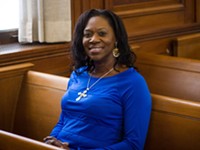
The stained-glass ceiling
Feb 8, 2017 - More »
Latest in Featured story
More by Chris Busby
-
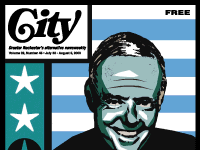
Chasing Amo
Jul 30, 2003 -

Pucker up, piggie
Jul 9, 2003 -

Alan's angels
Jul 9, 2003 - More »

